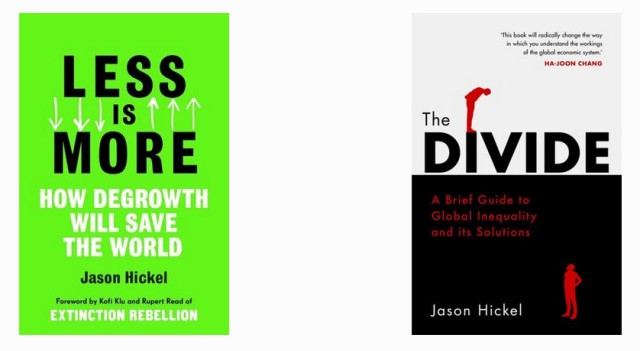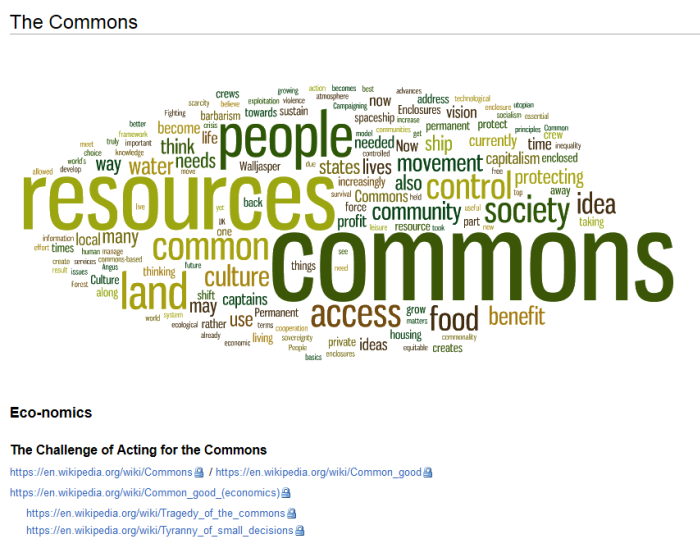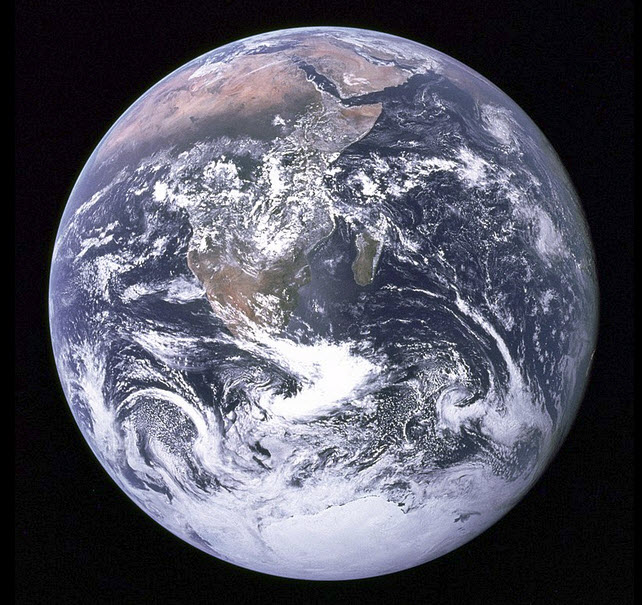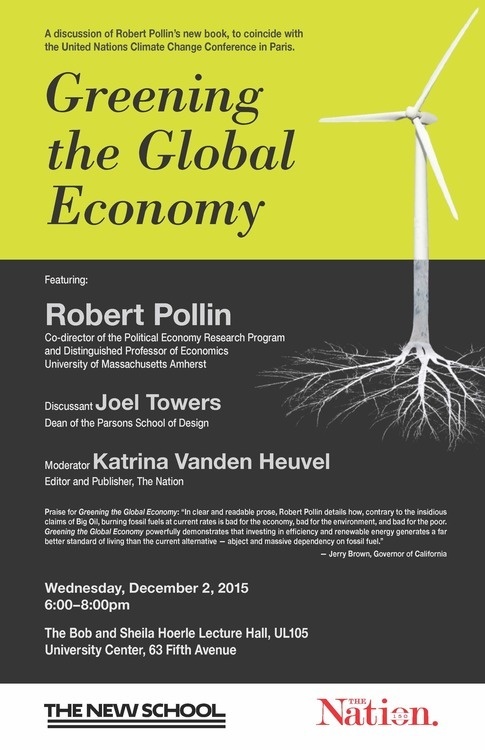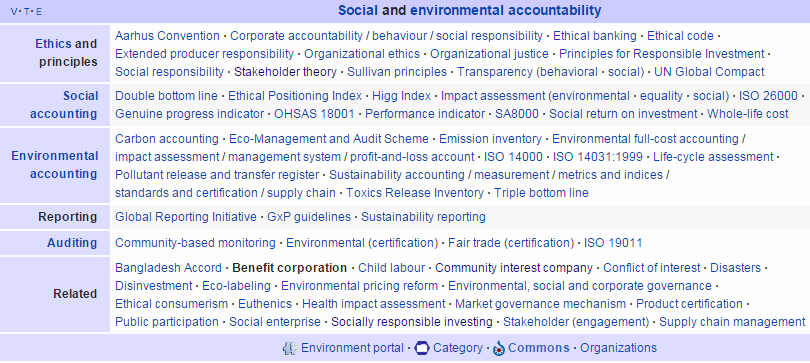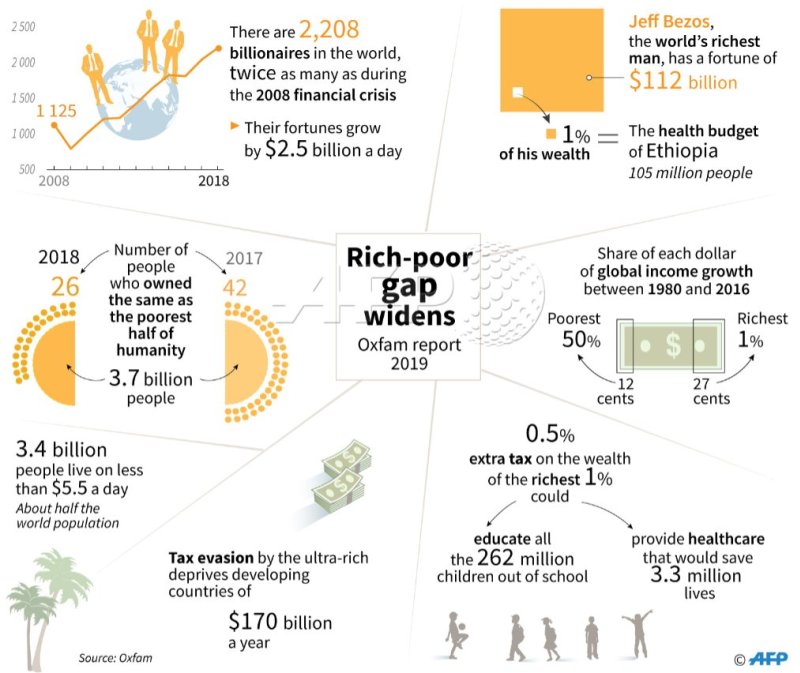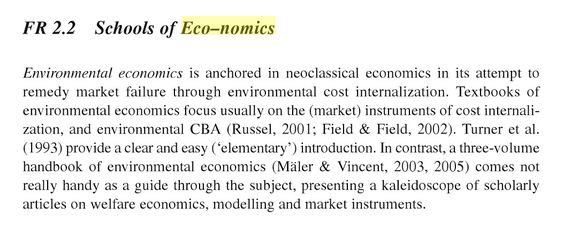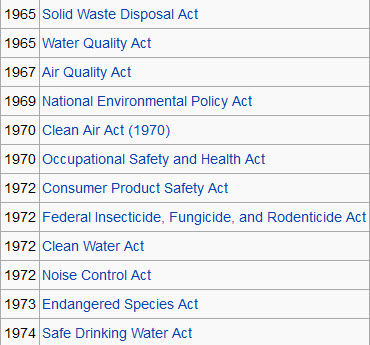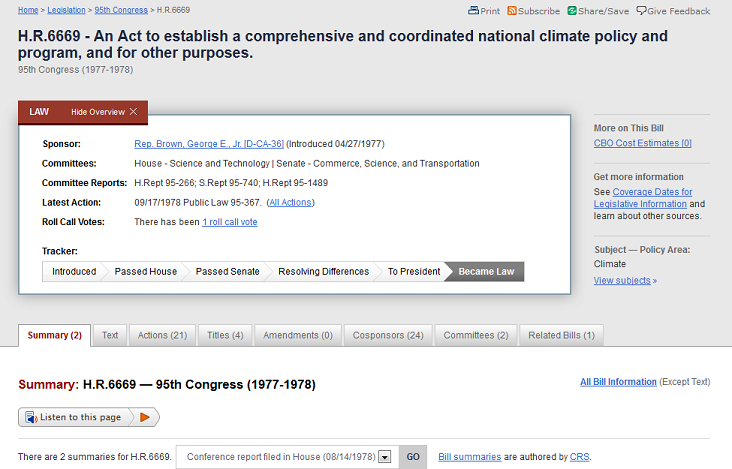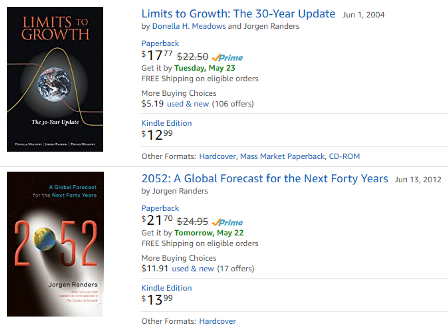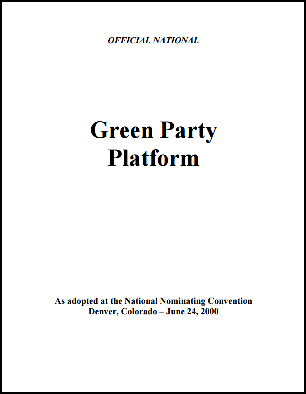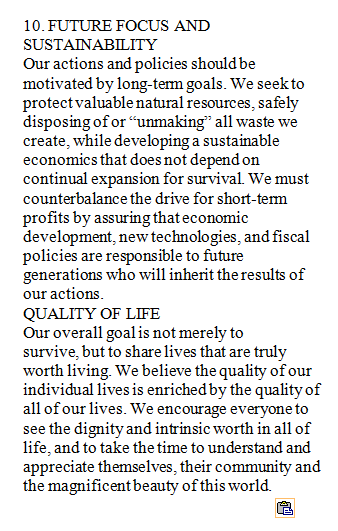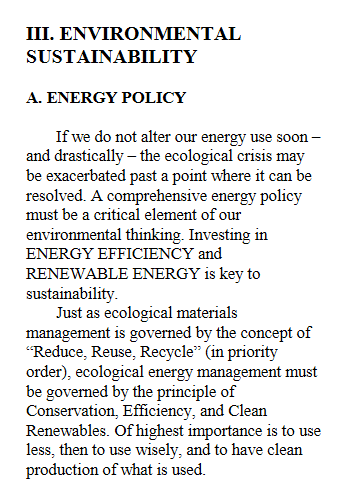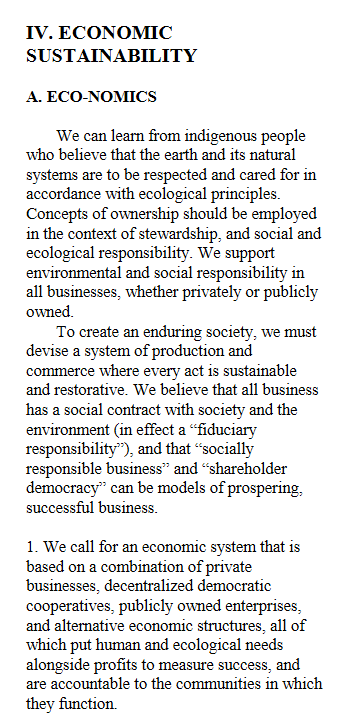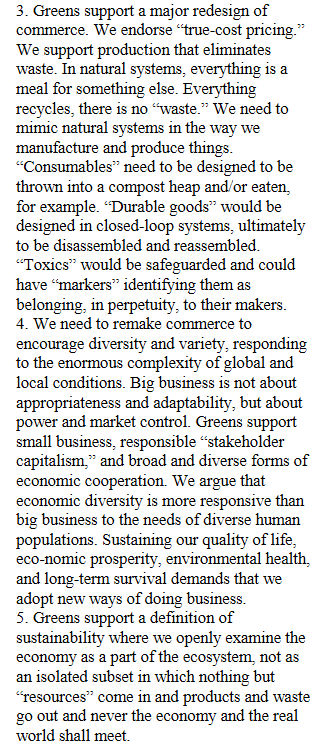Eco-nomics: Difference between revisions
Siterunner (talk | contribs) No edit summary |
Siterunner (talk | contribs) No edit summary |
||
| Line 26: | Line 26: | ||
Now is the time for action, a time for smart eco-nomics. | Now is the time for action, a time for smart eco-nomics. | ||
CONTENTS of ECO-NOMICS: A 21st Century New Economy | |||
New Definitions of Security, New Visions of Growth, Resilience & Sustainability | |||
[In-Dev] | |||
··································································· | |||
| Line 31: | Line 41: | ||
'' | ''GreenPolicy360 Network:'' | ||
''When the U.S. Constitution was written, the Industrial Revolution, engineered by the new aristocracy of the railroad barons and kings of capital, had not yet emerged. The word “corporation” appears nowhere in | ''Via the Bioneers: When the U.S. Constitution was written, the Industrial Revolution, engineered by the new aristocracy of the railroad barons and kings of capital, had not yet emerged. The word “corporation” appears nowhere in the Constitution's founding documents. But by 1813 John Adams was writing to Thomas Jefferson, “Aristocracy, like Waterfowl, dives for ages and then rises with brighter plumage.”'' | ||
''We’ve seen that happen throughout American history, from the Gilded Age of the late 19th century to the “new Gilded Age” of the 21st. Today we live in a world in which 26 billionaires own as much wealth as half the planet’s population. The three wealthiest men in the U.S. — Bill Gates, Jeff Bezos, and Warren Buffet — own more wealth than the bottom half of America combined, a total of 160 million people. Meanwhile, an alarming 47 percent of Americans cannot put together even $400 in the face of an emergency, leaving most of us unprepared to face such ordinary mishaps as a flat tire or a child’s twisted ankle.'' | ''We’ve seen that happen throughout American history, from the Gilded Age of the late 19th century to the “new Gilded Age” of the 21st. Today we live in a world in which 26 billionaires own as much wealth as half the planet’s population. The three wealthiest men in the U.S. — Bill Gates, Jeff Bezos, and Warren Buffet — own more wealth than the bottom half of America combined, a total of 160 million people. Meanwhile, an alarming 47 percent of Americans cannot put together even $400 in the face of an emergency, leaving most of us unprepared to face such ordinary mishaps as a flat tire or a child’s twisted ankle.'' | ||
Revision as of 01:55, 29 July 2020
Eco-nomics, Greening the Economy
SJS - Steven J Schmidt / GreenPolicy360 Siterunner:
Our GreenPolicy360 vision is of a future that is healthy and focused on sustainability and quality of life, not simply classic economic metrics of GDP/GNP.
Our overall goals aim at sustainability and responsibility. Each generation faces the great challenges of its times. Our 21st century challenge is to develop a multi-dimensioned economics, one that does not exacerbate existential threats of climate change, and massive inequality, environmental destruction and loss of common purpose.
Our generation has to find news way going forward, a new vision, a 21st century vision and, toward this goal a new 'eco-nomics' is 'in-dev' at GreenPolicy360.
We are not a singular ideology hoisting banners of capitalism or socialism, libertarianism or capitalism. We are more pragmatic, a mix of the best strategies, policies, community and personal choices. We are a diverse mix of economic solutions. We are neither left nor right, we are 'out in front'.
We acknowledge real world problems and strive to solve them. We see what could be and what is needed, a new economy movement and we advocate solutions to the great problems.
We are vested in protecting inalienable rights and offer a rights agenda based on a core set of values ensuring civil and minority rights, human rights, natural rights, women's rights.
We present a choice of opportunities, an array of green best practices that work to make a difference, a positive difference.
Now is the time for action, a time for smart eco-nomics.
CONTENTS of ECO-NOMICS: A 21st Century New Economy
New Definitions of Security, New Visions of Growth, Resilience & Sustainability
[In-Dev]
···································································
The Making of a Democratic Economy: Community Wealth-Building for a Sustainable Future
GreenPolicy360 Network:
Via the Bioneers: When the U.S. Constitution was written, the Industrial Revolution, engineered by the new aristocracy of the railroad barons and kings of capital, had not yet emerged. The word “corporation” appears nowhere in the Constitution's founding documents. But by 1813 John Adams was writing to Thomas Jefferson, “Aristocracy, like Waterfowl, dives for ages and then rises with brighter plumage.”
We’ve seen that happen throughout American history, from the Gilded Age of the late 19th century to the “new Gilded Age” of the 21st. Today we live in a world in which 26 billionaires own as much wealth as half the planet’s population. The three wealthiest men in the U.S. — Bill Gates, Jeff Bezos, and Warren Buffet — own more wealth than the bottom half of America combined, a total of 160 million people. Meanwhile, an alarming 47 percent of Americans cannot put together even $400 in the face of an emergency, leaving most of us unprepared to face such ordinary mishaps as a flat tire or a child’s twisted ankle.
Our economy is not only failing the vast majority of our people; it is literally destroying our planet. It’s consuming natural resources at more than one-and-a-half times the Earth’s ability to regenerate them. We are razing the only home our civilization has, yet we remain caught inside a system designed to perpetuate that razing, in order to feed wealth to an elite.
The reason is that the system has a capital bias at its core, a favoritism toward finance and wealth-holders that is woven invisibly throughout the system. We might call it an “extractive economy,” for it’s designed to enable a financial elite to extract maximum gain for themselves, everywhere on the globe, heedless of damage created for workers, communities, and the environment...
With an eye toward building a more democratic economy
New approaches — such as chartering corporations to make them accountable to the public and giving equity shares to worker ownership funds, placing public ownership of utilities at the center of a Green New Deal, and creating public banks to finance democratic development models — point to a new system now being created. They herald a potentially profound shift from an extractive economy to a democratic economy.
The problem is that people by and large don’t see this — not even the people who are part of it. The work of employee-owned companies, impact investing, public banking, racial justice in economic development, local purchasing by anchor institutions, and more is being done in siloed activities all over the world.
It’s not that the new system hasn’t been named. It has too many names: “stakeholder capitalism,” the “solidarity economy,” “new economy,” “sharing economy,” “regenerative economy,” the “living economy.”
The struggle for new language is a sign of the times. We stand at a turning point where many share a sense of peril about the possibility of systemic collapse. As the old system fails, we’re losing the conceptual world that has given our lives meaning. We need new vision and new naming.
Socialism isn’t it. Capitalism isn’t it. An economy adequate to today’s challenges just isn’t there in those 19th-century paradigms. The “democratic economy” isn’t yet a term in common use. It’s offered here as a unifying frame for the movement that doesn’t know it’s a movement, aiming to help more of us recognize the potential for system-level transformation.
A democratic economy isn’t a top-down command economy. It isn’t capitalism plus more regulations and social safety nets, nor is it capitalism plus green technologies. Building a democratic economy is about redesigning basic institutions and activities—companies, investments, economic development, employment, purchasing, banking, resource use—so that the core functioning of the economy is designed to serve the common good.
Democracy needs to move inside the economy. Putting such values as sustainability or fairness on the outside of the system through regulation and social safety nets is like attaching barnacles to the side of a whale. These values need to be in the DNA. Anything less than deep redesign will likely fail to see us through the tumultuous era ahead for the earth community.
For More visit GreenPolicy360's friends -- the Bioneers
See Ted Howard speak about 'Making of a Democratic Economy' at the Bioneers Conference
• http://conference.bioneers.org
• https://conference.bioneers.org/speakers
···································································
Eco-nomics / Eco-economic Decoupling / Key Takeaway
As Jason Hickel of the London School of Economics has written:
“Over and over again, empirical data shows that it is possible to achieve high levels of human welfare without high levels of GDP with significantly less pressure on the planet. How? By sharing income more fairly and investing in universal health care, education, and other public goods. The evidence is clear: When it comes to delivering long, healthy, flourishing lives for all, this is what counts — this is what progress looks like.”
Jason Hickel
An emerging economic model is looking to shift our focus from constant growth to balance, well being and quality of life
Could the Doughnut model become the compass we need for creating a safe and just 21st century?
················································································
More from the UK, Font of Classical Economics
George Monbiot Echoes Jason Hickel
@GeorgeMonbiot, April 25, 2019 / For most of my adult life I’ve railed against “corporate capitalism”, “consumer capitalism” and “crony capitalism”. It took me a long time to see that the problem is not the adjective but the noun. While some people have rejected capitalism gladly and swiftly, I’ve done so slowly and reluctantly. Part of the reason was that I could see no clear alternative: unlike some anti-capitalists, I have never been an enthusiast for state communism. I was also inhibited by its religious status. To say “capitalism is failing” in the 21st century is like saying “God is dead” in the 19th: it is secular blasphemy. It requires a degree of self-confidence I did not possess.
But as I’ve grown older, I’ve come to recognise two things. First, that it is the system, rather than any variant of the system, that drives us inexorably towards disaster. Second, that you do not have to produce a definitive alternative to say that capitalism is failing. The statement stands in its own right. But it also demands another, and different, effort to develop a new system.
Perpetual growth on a finite planet leads inexorably to environmental calamity.
Capitalism’s failures arise from two of its defining elements. The first is perpetual growth. Economic growth is the aggregate effect of the quest to accumulate capital and extract profit. Capitalism collapses without growth, yet perpetual growth on a finite planet leads inexorably to environmental calamity.
Those who defend capitalism argue that, as consumption switches from goods to services, economic growth can be decoupled from the use of material resources. Last week a paper in the journal New Political Economy, by Jason Hickel and Giorgos Kallis, examined this premise. They found that while some relative decoupling took place in the 20th century (material resource consumption grew, but not as quickly as economic growth), in the 21st century there has been a recoupling: rising resource consumption has so far matched or exceeded the rate of economic growth. The absolute decoupling needed to avert environmental catastrophe (a reduction in material resource use) has never been achieved, and appears impossible while economic growth continues. Green growth is an illusion....
·····················································································
'Green Growth', Illusion or Potential for Eco-nomic Growth?
Taking Another Look at Herman Daly, Steady-state Economics and Sustainable Economies
History of science on the MediaWiki platform -- Shifts in a scientific paradigm presented by Professor Daly
·····················································································
Abstract: The notion of green growth has emerged as a dominant policy response to climate change and ecological breakdown. Green growth theory asserts that continued economic expansion is compatible with our planet’s ecology, as technological change and substitution will allow us to absolutely decouple GDP growth from resource use and carbon emissions. This claim is now assumed in national and international policy, including in the Sustainable Development Goals. But empirical evidence on resource use and carbon emissions does not support green growth theory. Examining relevant studies on historical trends and model-based projections, we find that: (1) there is no empirical evidence that absolute decoupling from resource use can be achieved on a global scale against a background of continued economic growth, and (2) absolute decoupling from carbon emissions is highly unlikely to be achieved at a rate rapid enough to prevent global warming over 1.5°C or 2°C, even under optimistic policy conditions. We conclude that green growth is likely to be a misguided objective, and that policymakers need to look toward alternative strategies. KEYWORDS: Sustainable development, ecological economics, green growth, degrowth, decoupling
················································································································
The world economy is set to double in size within the next 20 years. At the same time, we need to slash carbon emissions by 40 percent of current levels. That’s a daunting challenge, but in a recent talk at Columbia University, one of the world’s leading climate economists, Nicholas Stern from the London School of Economics, outlined how we could meet it.
················································································································
"Exergy", "Sink Costs", Capitalism: Ecological crisis, Economic transformation
Via the Independent, By Nafeez Ahmed, September 2018
“We live in an era of profound change.... The era of cheap energy is coming to an end.”
As the era of cheap energy comes to an end, capitalist thinking is struggling to solve the huge problems facing humanity.
"Eco-nomics" for the 21st Century
A New Green Political Economy
- Turning from Short-Term to Long-Term Thinking
- Eco-nomics, a 21st Century paradigm in development @ GreenPolicy360
- ············································································
- ·······························································
Green economic ecology -- diverse approaches across communities, peoples, and nations
Challenges and opportunities that call for green policies globally and locally
Alternatives to Winner and Loser Economics
Democratic political economy — where people’s influence on policy is roughly equal and political preferences are arrived at through open, well-informed public debate — must be considered for any policy proposals in 2019. Too many policy ideas break on the rock of government capture by special interests or systematically distorted presentations in the media. Ethan Kaplan draws on a few decades of empirical political economy to suggest policies that could drastically alter the balance of political influence in the United States. His proposal exemplifies the strengths of empirical political economy as practiced in economics departments. The evidence cited is all carefully identified from naturally occurring variation and suggests a number of policies that could equalize political representation and increase turnout. Some of these suggestions highlight margins that are more likely to be thought of by an economist rather than a political scientist: for example, the increased influence of money when media coverage of politics is low suggests that politicians, behaving somewhat rationally, trade-off responsiveness across pecuniary and popular constituencies.
Many of the essays share the theme of how power asymmetries shape our contemporary economy. Many economists dismiss the role of power because they think it cannot be studied rigorously or belongs outside economics. As Naidu puts it in his essay, “under conditions of perfect competition and information, there is no scope for power.” But asymmetries between different groups abound: who has the upper hand in bargaining for wages and employment; who has market power and who gets to compete; who can move across borders and who is stuck at home; who can evade taxation and who cannot; who gets to set the agenda of trade agreements and who is excluded; who can vote and who is effectively disenfranchised. Some of these asymmetries are traditional political imbalances; others are power imbalances that naturally occur in the market due to informational asymmetries or barriers to entry.
Policies that counter such asymmetries make sense not only from a distributional standpoint but also for improving aggregate economic performance. The policy essays tackle these asymmetries frontally and suggest ways of rebalancing power for economic ends. Unions and wage boards can rein monopsony power in labor markets (Naidu and Dube); putting sand in the wheels of financial globalization can enhance the fiscal capacity of the state (Zucman); regulating private finance can prevent crises (Admati and Mian); giving labor a greater say in trade agreements can improve the design of trade agreements (Rodrik); and restricting campaign contributions and making it easier for poorer people to vote can increase the accountability of the political system (Kaplan).
- ·······················································································
A Green Paradigm --- Eco-nomics --- a New Vision of Economic Development & "The Commons"
- ·············································
- ·············································
SJS / GreenPolicy Siterunner: (Recalling the beginnings of the environmental movement and "eco-nomics" as a "school of thought")
In the mid-1970s, continuing what became a thirty plus year professional relationship with Congressman George E. Brown, I began to advocate developing a paradigm (ala Thomas Kuhn's definition of the scientific term) that extended environmental security concepts coming out of the student and environmental movement of the 1960s.
In the 1970s, as a young editor at a NY publishing and printing company, I took three years at nights to immerse myself in a History of Ideas / Political Economy program at the Graduate Faculty of the New School, the New School for Social Research.
Hannah Arendt was there when I arrived in the city and her reputation and the university's reputation as a "University in Exile" originally having attracted some of the top European liberal scholars in the world spoke to me of deep thinking.
Professors like Robert Heilbroner and David Gordon opened new vistas of thought as we introduced and debated capitalism versus new forms of economics that could begin to address conflicts and contradictions within capitalism. The legacy of world wars and the Vietnam war loomed in the rear-view mirror and the nuclear weapons brink of "mutually assured destruction" as the central strategic policy of the "Cold War" mentality loomed in pervasive form.
The political alternatives to conventional thinking found a voice in Democratic progressive politics. In 1976 I worked with California Governor Jerry Brown and his presidential campaign for the first time and during this period the Governor became nationally known for his forward thinking -- (some, like Mike Royko in Chicago thought the Governor was a little too forward and ribbed him with 'far out' names until years later when Mike apologized and most others publicly recognized the success of Governor's Brown's 'out in front' ideas...)
~
Over the 1970s and 80s Congressman George Brown and I continued to speak often and we regularly met in Washington DC. As a trained scientist/engineer, Congressman Brown continued as a strong voice in the science community and was focused intently on an array of environmental issues. He drafted the first national climate act that passed in 1978. The question of 'real security' not illusory security was at the core of both of our thinking and 'deep' environmental challenges were at the center of a new foundation of environmental legislation. During the period in the late 70s, the Congressman worked with vision to draft the first federal legislation studying the question of global warming, as the AAAS completed its first reports. We spoke together and in our circles of the challenges of industrial policy (as it was called) and costs, costs of war to protect oil/gas and costs to the public from pollution to air, water, cities, health. The Congressman and our allies were successfully shaping the first generation of environment laws and we were envisioning and achieving multiple goals in these endeavors.
In 1976, when I lived in NYC and worked with Jerry Brown in his first campaign for president, we began a long relationship. Our central message was one of ecological economics and in many regards we were ahead of the times, even as we were pioneering the modern environmental movement and California was bringing its legislation and regulations forward to the federal level (and Detroit) as models of what could be and should be accomplished.
Academically, a modern ecology/environmental movement was forming as a "school of thought" but this was more of a thread than a deep current capturing the a more diverse, multi-dimension body of knowledge, belief and vision.
In the early 1990s I worked more closely with Governor Brown, as a senior adviser in his presidential campaign, helping to set up the media/issues and correspondence functions (with quick 'turn-around) and drafting an 'insurgent' platform. We brought it forward advocating a change in direction for the Democratic party, a "peace dividend", a focus on worker/environmental standards, a move away from dominance of 'money-in-politics' to a new type of populist politics. Robert Pollin was our campaign's primary economic spokesperson and his green economic thought continues to be at the forefront of today's political vision. Although our '92 "We the People", "Take Back America" campaign surprised and succeeded in its own way, we lost to the Democratic Leadership Council and its chair, Bill Clinton. A move to compete in a war of money and campaign contributions took the Democratic party in a direction that I could not support -- and so I moved on...
My drafting of the founding national Green Platform began after the 1992 Brown campaign platform and your siterunner chose to 'go independent' and build a serious, credible Green Party, first in New Mexico and then a formal, legal Green national party.
The concept of 'eco-nomics' advanced in my work.
My writing and political ventures explored eco-strategic ideas, a new concept of political economy and sustainability as I discussed it with George, and Jerry, and associates in many arenas. At the time, as a member of the Writers Guild and immersed in movie-making, bringing serious themes to the big screen, I wanted to go beyond Hollywood and a writer with whom I was working, Stirling Silliphant, urged me to leave the city if I wanted to do "serious writing." So, after much thought, in the late 1980s I moved from the beach in Santa Monica and Pacific Palisades to the high desert, to Santa Fe, a town named after St. Francis of Assisi. I lived on Camino del Monte Sol, under Sun Mountain, across from a Monastery and the campus of St. John's College. I became an adviser to the President of St. John's College as we attempted to fund and build a new library and sought, at first successfully the archives of Robert Hutchins and the Center for the Study of Democratic Institutions as a core collection, then had to go back on our agreement when we were outvoted by the college's Annapolis directors.
My writing began every morning as monks chanted in the near distance and, in some ways, my original work reflected Bear & Company thoughts of that time as with Charlene Spretnak's "Spiritual Dimensions of Green Politics" and Matthew Fox were brought together with science that was revealing gathering threats to "the Commons".
The result was a more developed body of thought and work, "New Definitions of Security", and over the years these new definitions have expanded into security studies (as with Strategic Demands) and security briefs (as with Strategic Demands of the 21st Century: A New Vision for a New World, from conferences (Surviving Victory) to political platforms as foundations for presidential campaigning, Jerry Brown's in 1992, and on to the founding a new political party, the Greens in 2000.
Natures "strategy of survival", as we often say at GreenPolicy, lies in diversity.
The time for "Eco-nomics" is here and now. Let us explore new visions of security running deep with diversity.
Greening the Global Economy / 2015 / by Robert Pollin
More from Robert Pollin and a New School Political Economy Legacy:
“In clear and readable prose, Robert Pollin details how, contrary to the insidious claims of Big Oil, burning fossil fuels at current rates is bad for the economy, bad for the environment, and bad for the poor. Greening the Global Economy powerfully demonstrates that investing in efficiency and renewable energy generates a far better standard of living than the current alternative — abject and massive dependency on fossil fuel.” — Jerry Brown, Governor of California
In Greening the Global Economy, economist Robert Pollin shows that they are attainable through steady, large-scale investments—totaling about 1.5 percent of global GDP on an annual basis—in both energy efficiency and clean renewable energy sources. Not only that: Pollin argues that with the right investments, these efforts will expand employment and drive economic growth.
Drawing on years of research, Pollin explores all aspects of the problem: how much energy will be needed in a range of industrialized and developing economies; what efficiency targets should be; and what kinds of industrial policy will maximize investment and support private and public partnerships in green growth so that a clean energy transformation can unfold without broad subsidies.
All too frequently, inaction on climate change is blamed on its potential harm to the economy. Pollin shows greening the economy is not only possible but necessary: global economic growth depends on it.
- ○ ○ ○ ○ ○ ○ ○ ○ ○ ○ ○ ○ ○ ○ ○ ○ ○
- Eco-nomics: A Challenge to Classical and Neoliberal Economics
○
Economic Growth, Systemic Poverty
○
Can capitalism, conservation, and cosmopolitanism coexist?
- Via Grist / by Nathanael Johnson / 2016
- https://grist.org/series/the-poverty-solution-put-people-first/
- https://grist.org/article/how-do-we-fight-poverty-without-wrecking-the-planet/
Unbridled capitalism cannot accurately value nature, and does not recognize the property rights of the people who depend upon the natural world for survival. All of humanity depends upon natural systems, of course — but it’s the poor living off the land who have the most to lose from their destruction.
When capitalism is bridled and harnessed, so as to recognize the rights of the disenfranchised, it can provide prosperity and protect the environment.
As economist Amartya Sen has argued, the goal of economic growth is not simply growth, but the provision of liberty. When people have freedom — freedom from hunger, disease, and oppression, the liberties necessary to take the long view — they can protect the resources they depend upon, not to mention the creatures and landscapes they love.
If people in poorer countries need to take a more expensive, but less carbon intensive, path out of poverty, rich countries should be prepared to pay the difference. At the Paris climate summit and preceding meetings, leaders have set up a (totally Byzantine) system for making these sorts of payments. So far, affluent countries have promised more than they have contributed.
The faster poverty declines, the faster the natural systems that support human lives will rebound — and, most importantly, the freer those lives will be.
○
Another point of view continues a critique of capitalism and sets aside the diversity of eco-nomic approaches, methods and solutions as not sufficient ...
The final paragraph of the author's analysis via a Truthout article addresses what he calls "Green Capitalism's failures..." and argues for a remaking of capitalism and instituting of 'command economy' decisions.
Richard Smith (An "Economic Historian", has "written on China, capitalism and the global environment and on related issues for New Left Review, Monthly Review, The Ecologist, the Journal of Ecological Economics, Real-World Economics Review, Adbusters magazine and other publications:
"We can't shop our way to sustainability because the problems we face cannot be solved by individual choices in the marketplace. In the final analysis, the only way to align production with society's interests and the needs of the environment is to do so directly. The huge global problems we face require the visible hand of direct economic planning to reorganize the world economy to meet the needs of humans and the environment, to enforce limits on consumption and pollution, to fairly ration and distribute the goods and services we produce for the benefit of each and every person on the planet and to conserve resources so that future generations of humans and other life forms also can live their lives to the full....
○ ○ ○ ○ ○ ○ ○ ○ ○
Eco-nomics: Are the Planet-Unfriendly Features of Capitalism Barriers to Sustainability?
Abstract This paper argues that there are essential features of capitalist modes of production, consumption, and waste dispersal in interaction with the environment and its built-in systemic features that contradict long-term sustainable development.
○ ○ ○ ○ ○ ○ ○ ○ ○
The Rise Of ECO-nomics: From Ego to ECO
- How to improve future competitiveness and the environment by changing the corporate consciousness
○ ○ ○ ○ ○ ○ ○ ○
○ ○ ○ ○ ○ ○ ○ ○
- Making room for a more complex view of what the obligations of managers might be
○ ○ ○ ○ ○ ○ ○ ○ ○
ECO:nomics: Capitalism and the Environment - A Wall Street Journal perspective - http://economics.wsj.com/
- "Fiduciary responsibility speaks of quarterly returns; survivability speaks to long-range vision and strategies"
March 2015 -- Wall Street Journal Forum -- ECO:nomics 2015 -- "New meaning of sustainability and the future of the environmental movement, where energy policy is heading"
Click here to view the 2015 WSJ ECO:nomics report.
Videos from ECO:nomics forum:
○ ○ ○ ○ ○ ○ ○ ○ ○
Overview: History of Ideas, "Schools of Eco-nomics"
____________________________________________
Ecological Economics
Sustainable economies, a new interdisciplinary framework that embraces the linkages among economic growth, environmental degradation, and social inequity.
"Blue-Green Eco-nomics: From the 1960s Forward
Global Security: Critical Security
○ ○ ○ ○ ○ ○ ○ ○ ○
Alt-Economics Reading
Progressive Economics Think Tanks
Center for Economic and Policy Research, Washington DC
Center for Popular Economics, Amherst, MA
Dollars & Sense, Somerville, MA
Global Development and Environment Institute, Tufts University
○
Political Economy Research Institute
- University of Massachusetts, Amherst
The Political Economy Research Institute (PERI) "...promotes human and ecological well-being through our original research. Our approach is to translate what we learn into workable policy proposals that are capable of improving life on our planet today and in the future. In the words of the late Professor Robert Heilbroner, we at PERI “strive to make a workable science out of morality.”
○
The Limits to Growth / A slim paperback by a little-known publisher published in March of 1972 became the best-selling environmental title in history. More than three million copies have been sold in at least 30 languages.
Its message is 'commonsensical': If humans propagate, spread, build, consume, and pollute beyond the limits of our tiny spinning orb, we will have problems.
••••••••••••••••••••
As time goes by, the past gives way to new perspective and vision. A global green vision speaks to today and future generations. Green "eco-nomics" presents a guide to navigate toward resilience and sustainability.
The upside to growth is seen with perspective. The limits to growth are coming into focus as an environmentally aware movement with planetary comes into being.
○
Environmental full-cost accounting
New Definitions of National Security
○
SJS / Siterunner: Again, looking back to the Graduate Faculty of the New School in New York, it would be appropriate to look at the political economic writing of one of my professors, David M Gordon, who passed away at a young age in 1996. As David spoke of long-term economics and coined the phrase “social structure of accumulation” (SSA) that augers the need to consider multi-generation impacts of economic activity. Robert Heilbroner was a great inspiration to us all over the years. Let's look back and forward with David's co-author Thomas Weisskopf who writes of David at the 2014 David Gordon Memorial Lecture --- Reflections on 50 Years of Radical Political Economy
New School for Social Research / Political Economy-Liberal Studies-History of Ideas (1970-2000)
- Gordon, David M. with Bowles, Samuel, "Beyond the Waste Land: A Democratic Alternative to Economic Decline" (1983) - https://www.amazon.com/Beyond-Waste-Land-Democratic-Alternative/dp/0385183453/
- Gordon, David M. with Bowles, Samuel; Weisskopf, Thomas E. "After the Waste Land: Democratic Economics for the Year 2000 (1990) - https://www.amazon.com/After-Waste-Land-Democratic-Economics/dp/087332644X/
Publications of David Gordon Memorial Lecture Series - http://urpe.org/?page=rrpe&side=browse_content&sub=david_gordon_memorial_lecture
○
Modern Monetary Theory / Some thoughts by Stephanie Kelton
○
Center for American Progress
Economic Policy Institute
Institute for New Economic Thinking
Institute for Policy Studies
New America Foundation
○
Small Is Beautiful by E.F. Schmumacher (as interpreted by Governor Jerry Brown)
SJS / Siterunner: One of my first conversations with Jerry Brown, which began a decades long association, had to do with Schumacher and a philosophy, a paradigm, that was gaining support in our nascent environmental movement...)
- http://www.latimes.com/politics/la-pol-sac-climate-brown-profile-20151201-story.html / December 2015
Throughout his political career, Brown has displayed a desire to minimize society’s footprint on the Earth -- a stance that will gain a global platform when he arrives in Paris on Friday to participate in the U.N. summit on climate change.
In his spartan lifestyle as a young Jesuit seminarian, his famously barren apartment when he was governor the first time in the 1970s and his more recent campaign to slash greenhouse gas emissions, Brown has always explored ways to limit consumption.
Four decades ago, his focus on the environment -- talking of "Spaceship Earth" and exhortations that "small is beautiful" -- was a curiosity. But as 50,000 people gather in Paris in an ongoing effort to stop global warming, it’s clear that the world has caught up with Brown.
During his weeklong trip, the governor will tout California’s policies, rub shoulders with corporate executives, sign agreements with foreign leaders and be feted at the U.S. ambassador’s residence for his efforts to urge a stronger international accord at the summit.
“They’re not calling him Moonbeam anymore,” said Tom Hayden, an environmental activist and former state legislator who has worked with Brown for years. “This is his moment.”
Small Is Beautiful: A Study of Economics As If People Mattered
- By E.F. Schumacher, Book published in 1973
Wikipedia: Schumacher argues that the modern economy is unsustainable. Natural resources (like fossil fuels), are treated as expendable income, when in fact they should be treated as capital, since they are not renewable, and thus subject to eventual depletion. He further argues that nature's resistance to pollution is limited as well. He concludes that government effort must be concentrated on sustainable development, because relatively minor improvements, for example, technology transfer to Third World countries, will not solve the underlying problem of an unsustainable economy.
Schumacher's philosophy is one of "enoughness", appreciating both human needs and limitations, and appropriate use of technology. It grew out of his study of village-based economics, which he later termed Buddhist economics, which is the subject of the book's fourth chapter.
He faults conventional economic thinking for failing to consider the most appropriate scale for an activity, blasts notions that "growth is good", and that "bigger is better", and questions the appropriateness of using mass production in developing countries, promoting instead "production by the masses". Schumacher was one of the first economists to question the appropriateness of using gross national product to measure human well-being, emphasizing that "the aim ought to be to obtain the maximum amount of well being with the minimum amount of consumption". In the epilogue he emphasizes the need for the "philosophy of materialism" to take second place to ideals such as justice, harmony, beauty, and health.
Tags: #Sustainability #Eco-nomics #QualityofLife
○ ○ ○ ○ ○ ○ ○ ○ ○
GreenPolicy360 Siterunner:
A Blue-Green Alliance
In the mid 1980s, the name 'Tony Mazzocchi' first came on my political radar via Congressman George E. Brown in Washington DC. Tony went way back with my friend George. They had met in the 1960s and Tony's work on OSHA, the Occupational Safety and Health Administration laws in the 1970s became a centerpiece in environmental-labor progress. Both men, in their respective work, set in motion a series of regulations that became a foundation for worker safety and environmental health. The Congressman in his committee work aided the labor leader on a shared labor agenda for many years.
In 1992, when I worked on Jerry Brown's 1992 presidential platform, I first met Tony as the Governor Brown prepared for Democratic party debates with Governor Clinton. Governor Brown's position on the WTO (World Trade Organization), GATT (General Agreement on Tariffs and Trade) and NAFTA (North American Free Trade Agreement) stood in contrast to the direction being taken by the Democratic Party, especially in its DLC push for a 'new way', a neo-liberalism supported by business interests.
Tony Mazzocchi agreed with us that so-called 'free trade', guided in closed-door negotiations and dispute resolution by corporate business, was not the way to go. We pushed for guaranteed worker and environmental protections built in to the global trade agreements being negotiated. We argued strongly in the debates and I accompanied Governor Brown to the Democratic Party platform hearings where we continued to argue for comprehensive 'fair trade' pro-labor policy and a new 'New Deal' coalition.
We spoke of setting a 'floor in negotiations' to protect wages and worker-environmental standards. The hard-won gains won in the 1960s/70s/80s that made the US leader in the world in environmental and worker protections should not be undercut, we said, but become a set of standards other countries would need to move towards. The policies we put forward, that Tony Mazzocchi supported, addressed 'non-tariff trade barrier definitions' and 'secretive tribunal decisions' used to punish setting of worker and environmental protections.
We spoke out for a 'transparent' flow of information to advance public discussion and decision-making. Big business interests argued for secrecy. They prevailed.
The Brown campaign came in second and was rebuffed in attempts to rework the platform. The Clinton campaign with its neo-liberal 'free trade' policies becames the face of the Democratic Party. The results are still playing out in today's economy.
Tony Mazzocchi and I continued to talk and in the 1990s I went on to draft a Green Party platform that carried forward a number of economic policies from the 1992 Brown campaign. Eco-nomics became a central focus of my personal work with a number of policies going back to the New School for Social Research in NY and fellow associates such as Robert Pollin, who also worked on policy with Governor Brown.
Tony became special assistant to the president of the Oil, Chemical and Atomic Workers International Union (OCAW) and in 1996 when I was in the center of starting up a new US Green Party, he was in the center of starting up a new Labor Party.
I approached him in Washington DC before the WTO 1999 meeting and protests in Seattle and offered him a 'Blue-Green Alliance' opportunity with the new Green Party. He said yes, so we prepared our Blue-Green plan took the ideas to Seattle in 1999 for the WTO. Unfortunately, our message and alliance was setback by the street demonstrations that turned violent. Anarchists and extremists, provocateurs of different types, became the news and the WTO and globalization moved on without needed changes and reforms.
After Seattle, I invited Tony to speak at the 2000 Green Party Convention in Denver, in front of a couple thousand gathered supporters, where the new Green Platform was passed and Ralph Nader nominated.
Nader and Mazzocchi went way back to the 1960s. Another set of battles with Shell oil, and the first asbestos in the workplace laws and the OSHA worker protection movement, and Karen Silkwood vs. Kerr-McGee.
Read Tony's story. He passed away in 2002. His ideas carry on...
SJS / Siterunner: Robert Pollin was an economic spokesperson in our 1992 Jerry Brown campaign for President of the United States...
Pollin attended the New School graduate faculty in political economy in the period when we were both students and he brings exceptional green eco-thinking to the debate over future economics.
Robert Pollin continues to be associated with 'out in front' California politics and initiatives.
Single-Payer Health Care in California, the Numbers in 2017
File:Single-Payer-Pollin-Economic-Analysis-CA SB-562.pdf
Of course health care is a large percentage of the US economy and health care continues to be a vital issue and serious problem as the US faces facts that include tens of millions of its citizens going without care, and losses in quality of life and productivity that result. As Supreme Court Justice Louis Brandeis used to say about the federal political system of the US, the states can be "laboratories of democracy" at work. A single-payer health care initiative springing from California -- and following onto Governor Brown presidential campaign of '92 with its national health care policy position -- continues to present new opportunities.
Green Eco-nomics
SJS: It is not a revelation to speak of green ideas as imbued with long-term thinking. The green vision has found roots and is spreading from local to global communities and the future is filled with the promise of green political thought.
It is sometimes said that "the future doesn't have a vote and, as a result, future generations are neglected". Greens think the future matters deeply and as evidenced in the wisdom of indigenous peoples like the Iroquois, who had a democratic system of governance that looked to "the seventh generation", green thinking speaks of 'the common interest' in decision-making. Green-leaning thought considers the future as "seventh generation thinking" extending beyond present demands and bringing forward key lessons and wisdom learned from the past. Green ideas are more needed than ever given the multiple challenges modern economic systems deliver with crises, contradictions and unsustainable growth.
Green ideas are brought forward, as I attempted to do, in the drafting of founding 2000 platform of the US Green Party.
SJS / US Green Party Platform Chair 1995-2000
The Green platform captures a green "future-focus" and a "Call to Action" to move to a more sustainable eco-nomic system.
"Fiduciary responsibility goes to quarterly returns; survival and sustainability, 'survivability' speaks to long-range vision and strategies" -- SJS
Excerpt from the founding platform of the US Green Party
Eco-nomics from a Green Political Perspective
"Offical National Green Party Platform"
- Excerpts from the US Green Party founding platform, 2000
○
- Anthropocene
- Atmospheric Science
- Bioneers
- Biosphere
- Citizen Science
- Civil Rights
- Clean Air
- Clean Water
- Climate Change
- Democratization of Space
- Digital Citizen
- Digital Rights
- Diversity
- Earth
- Eco-nomics
- Ecological Economics
- EOS eco Operating System
- Earth360
- EarthPOV
- Earth Observations
- Earth Science
- Ecofeminism
- Ecology Studies
- Economic Development
- Economic Justice
- Energy
- Environmental Full-cost Accounting
- Environmental Laws
- Environmental Protection
- Environmental Security
- Environmental Security, National Security
- Global Security
- Global Warming
- Green Best Practices
- Green Networking
- Green Politics
- Human Rights
- Money in Politics
- Natural Resources
- Natural Rights
- Networking
- New Definitions of National Security
- New Space
- Online Education
- Overview Effect
- Planet Citizen
- Planet Citizens
- PlanetLabs
- Planet Scientist
- Planet Citizens, Planet Scientists
- Renewable Energy
- Resilience
- Sea-Level Rise & Mitigation
- Seventh Generation Sustainability
- Social Justice
- Solar Energy
- Strategic Demands
- Sustainability
- Sustainability Policies
- ThinBlueLayer
- Water Quality
- Whole Earth
- Wildlife
- Women's Issues
- Women's Rights
- World Wide Web
- Youth

